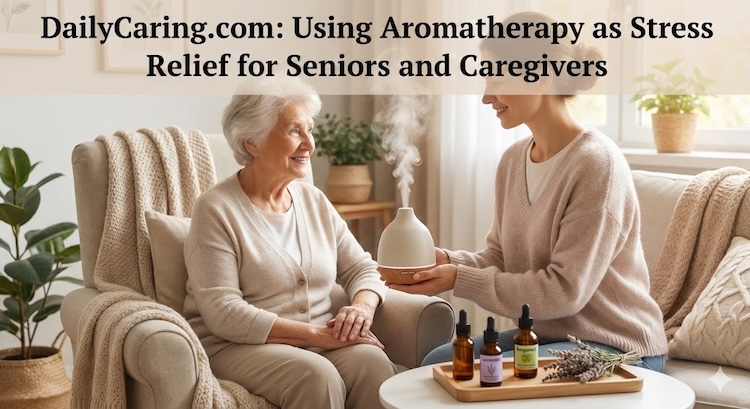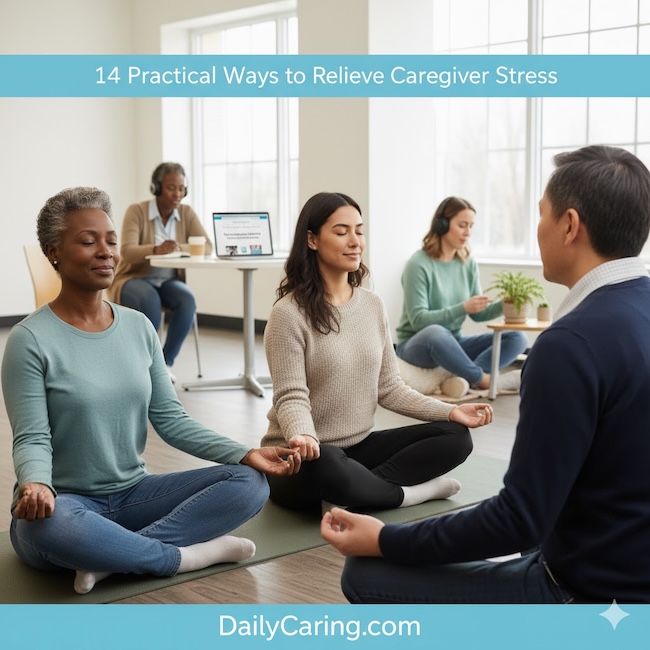Caregiving is a labor of love, but even the most devoted caregivers can feel physically, emotionally, and mentally drained. When the to-do list never ends, guilt creeps in, and exhaustion can become your new regular.
In this article, we share five actionable coping strategies to help overwhelmed caregivers recharge, reduce stress, and find moments of peace amid the chaos. Taking care of yourself isn’t selfish; it’s essential for family caregivers and the loved ones they care for.

What To Do When You Become An Overwhelmed Caregiver
Caring for an older adult is an all-consuming and demanding job.
This can easily lead to overwhelming feelings – sometimes it's too much.
We found a great article from Retro Housewife Goes Green that lists five things you can do to improve your situation when you’re overwhelmed.
We especially like these tips because they help you feel more in control and set you up to reduce stress in the future.
They'll help dig you out of that “overwhelmed caregiver” rut.
We share highlights from the article and explain how to use these five tips to reduce caregiver stress.
5 Coping Tips for the Overwhelmed Caregiver
1. Set Up Daily Routines for Structure
Don’t underestimate how helpful a daily routine will be for you and your loved one.
A routine means doing the same basic activities at the same time every day. This gives the day structure and a natural flow.
Routines help seniors feel more secure because they know what to expect. This reduces struggles over everyday tasks and improves sleep.
Routines reduce stress and headaches for you as well. When your older adult is calmer and more cooperative, the day goes more smoothly.
Routines also reduce the need to make dozens of little daily decisions.
2. Use a Planner or Calendar to Stay Organized
Caregiving makes life complicated. Relying on memory to know when doctor’s appointments are, when payments are due, and when prescriptions need to be refilled adds to your stress.
Use a planner or calendar to write down your older adult’s appointments and important tasks.
This makes it easy to look ahead and know what’s coming up – no more panic over last-minute surprises.
3. Take Care of Yourself (Self Care)
It’s easy to put off caring for yourself when there are so many things your older adult needs. In fact, it often feels like you have no choice.
But if you don’t take care of your own physical and mental health, everything else suffers – including how well you can care for your older adult.
If it’s not managed, caregiving stress can damage your health.
Poor health could leave you too ill to continue caring for your older adult.
Taking time to relax and do something you enjoy is essential. Even 5 minute breaks can make a big difference in your stress level and health.
We’ve got plenty of suggestions for taking breaks and reducing stress here.
4. Have Freezer Meals on Hand
Preparing and freezing meals in advance removes stress on those super tiring days.
Plus, you’re more likely to eat something healthy if it’s already prepared.
Ready-to-freeze meals are also a great thing to ask family and friends to make.
They may not be able to provide hands-on care for your older adult, but they could prepare casseroles for you to eat when you don’t have time to cook.
5. Build In Extra Time
In the hopes of finally completing our To Do lists, we pack as many tasks into our day as possible.
This is great in theory, but it adds extra stress in practice.
When you’re on such a tight schedule, there’s no flexibility for delays or if something unexpected comes up.
Choose the things you can realistically accomplish and plan extra time for everything.
That way, you don’t have to worry if something takes longer than expected or if you need an extra 5 or 10 minutes for a quick self-care break.
Recommended for you:
- 6 Ways to Make It Easier for Caregivers to Take a Break
- 6 Ways to Stop Judging Yourself as a Caregiver
- 10 Ways for Caregivers to Take a Quick Break
This article contains affiliate links. We never link to products or services for the sole purpose of making a commission. For more information, see How We Make Money.
About the Author

Connie is the founder of DailyCaring.com and was a hands-on caregiver for her grandmother for 20 years. (Grandma made it to 101 years old!) She knows how challenging, overwhelming, and all-consuming caring for an older adult can be. She also understands the importance of support, especially in the form of practical solutions, valuable resources, and self-care tips.













